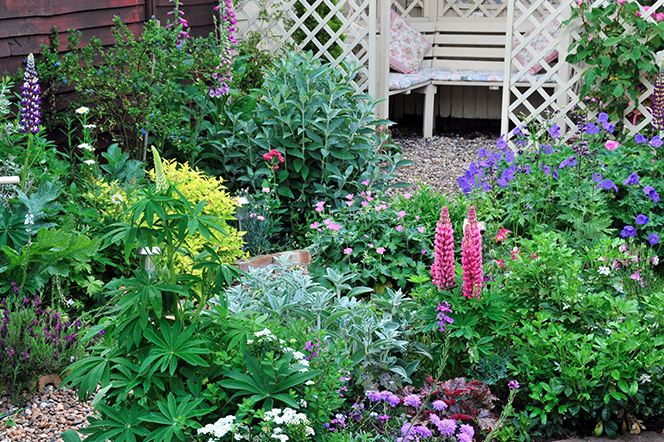Green up your garden
Themes: Children, Garden, Green spaces, Health and wellbeing

Description
If you’re lucky enough to have a garden there are so many things you can do to make a difference.
Our cities are becoming increasingly important for nature. Some species are actually increasing due to urban green habitats.
As well as homes for all sorts of critters, our gardens can help us prepare for the effects of climate change in Bristol by:
- Providing shade
- helping reduce flooding
- feeding pollinators
Here are some wins for nature that you can do in your garden:
- Avoid AstroTurf – Artificial lawn is a no-go for a ‘green’ garden. Not only are high levels of energy and oil used to produce it, AstroTurf also deprives insects and other ecosystems of a home. As it wears, it sheds small pieces of plastic that pollute the environment.
- Create a greener driveway – If you need to park a car make the surface is permeable to encourage plants around it. Replace as much paving, concrete and gravel with wild grasses and flowers for bees.
- Cut down on chemicals – Use natural repellents in your garden. Instead of slug pellets, try copper tape. Swap the weedkiller for a weeding knife.
- Why waste water? – Swap your garden hose for a watering can and get a water barrel to collect rainwater. You will save money on your water bill and conserve water in the summertime.
- Don’t be too tidy – It may be tempting to keep your patch in ship shape but small pockets of ‘overgrowth’ or piles of cuttings, sticks or logs can make a huge difference. A small area for nettles could help save endangered species of butterflies!
- Have a small yard, or live in a flat? – Grow vertically. Upcycle an old basin, bin, pair of wellies – just about anything. Tomatoes, beans, peas, cucumbers and melons are all suited to growing vertically, maximising the amount you can grow.
- No Garden? – Have you considered taking part in a community garden? Or applying for your own allotment?
Useful links
Green up your garden
Themes: Children, Garden, Green spaces, Health and wellbeing

Description
If you’re lucky enough to have a garden there are so many things you can do to make a difference.
Our cities are becoming increasingly important for nature. Some species are actually increasing due to urban green habitats.
As well as homes for all sorts of critters, our gardens can help us prepare for the effects of climate change in Bristol by:
- Providing shade
- helping reduce flooding
- feeding pollinators
Here are some wins for nature that you can do in your garden:
- Avoid AstroTurf – Artificial lawn is a no-go for a ‘green’ garden. Not only are high levels of energy and oil used to produce it, AstroTurf also deprives insects and other ecosystems of a home. As it wears, it sheds small pieces of plastic that pollute the environment.
- Create a greener driveway – If you need to park a car make the surface is permeable to encourage plants around it. Replace as much paving, concrete and gravel with wild grasses and flowers for bees.
- Cut down on chemicals – Use natural repellents in your garden. Instead of slug pellets, try copper tape. Swap the weedkiller for a weeding knife.
- Why waste water? – Swap your garden hose for a watering can and get a water barrel to collect rainwater. You will save money on your water bill and conserve water in the summertime.
- Don’t be too tidy – It may be tempting to keep your patch in ship shape but small pockets of ‘overgrowth’ or piles of cuttings, sticks or logs can make a huge difference. A small area for nettles could help save endangered species of butterflies!
- Have a small yard, or live in a flat? – Grow vertically. Upcycle an old basin, bin, pair of wellies – just about anything. Tomatoes, beans, peas, cucumbers and melons are all suited to growing vertically, maximising the amount you can grow.
- No Garden? – Have you considered taking part in a community garden? Or applying for your own allotment?
Useful links
Can you suggest an action?
Let us know what you think is missing – or tell us about something else you do to reduce your impact.
